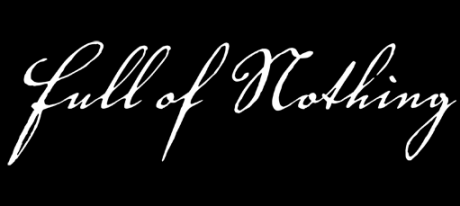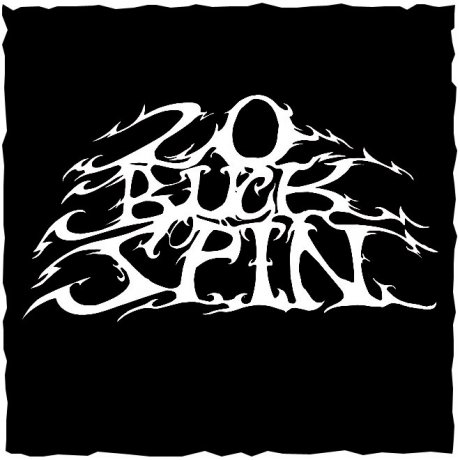We celebrate the end of the year the only way we know how: through lists, essays, and mixes. Join us as we explore the music and films that helped define the year. More from this series
Another alluring aspect of vinyl is that it cannot be easily directly replicated. Tapes can be dubbed, CDs burned, and digital files infinitely copied, but vinyl discs can only be replicated through time-consuming processes with expensive materials. Bigger record labels started losing large sums of money when consumers realized CDs are simply vehicles for digital files. Through this collective enlightenment, CDs began and continue to be seen as unnecessary. Digital music is squeaky clean and convenient, but vinyl is more elusive and the object itself has value on multiple levels.
Is making a living from your label something you view as a possibility?
Yes, it hasn’t happened yet, but I dedicate most of my time to the label, so I do view it as a possibility in a subconscious way.
What are the criteria you use to decide whether to release a band’s music?
I enjoy a wide variety of music, but when considering starting a label, I knew it had to have a solid direction. I would never be satisfied releasing a confused mixture of all the different types of music that I appreciate. The label did not start with a straightforward mission but has been developing one ever since. Initially, after contacting a bunch of artists I decided to start the label with Rafael Toral due to his enthusiasm and trust, despite the fact we had just met. Once the first release was out, a few curatorial pathways had been created to follow. Since record players must remain stationary to work effectively, vinyl is the perfect medium for challenging music that requires maximum attention to be fully appreciated. Broadly speaking, that is the criteria. I feel that, as the catalog grows, more channels will open to invite a wider range of sound that falls under the vast category of experimental music.
Do you think that in this climate simply providing quality music is enough to guarantee decent-to-good sales?
No, there is an ever expanding plethora of music to choose from being made and released to the public. Free music is the reality and investing money in music is an option, not a necessity, so if a certain title isn’t completely attractive, it will easily be passed for something else. It seems to be the case that people are comfortable absorbing advertisements for free content. The label survives on the outskirts by providing music without advertisements included with the releases or on our site. This is something I often forget but plays a huge roll in how we operate. There are a lot of loyal customers who continue to support the label and are keeping it afloat. But I wouldn’t say there’s ever a guarantee of anything; people believe in our honesty and that respect fuels momentum.
Have you ever decided against putting out a record because you anticipated it wouldn’t sell well?
No, but I try to remain realistic. A lot of this comes down to the artists themselves, how dedicated they are. I take the label very seriously and operate it as professionally as possible. If a musician has dedicated their life to it, I’m much more comfortable working together than with someone who works on it sporadically. There will always be exceptions, but I put so much time and effort into the label, I feel like all of the parts that contribute to it should have a similar amount of commitment.
What’s the most notable thing you’ve seen/done to put out/promote a record?
Third Man, although I don’t own a single record of theirs, has been doing some creative stuff as advocates of vinyl. This is made possible by the popularity of Jack White, but he’s using his celebrity to push vinyl commendably. Their flexi-discs attached to helium balloons stunt was pretty crazy. I also read they made a 12-inch that you had to crack open at the edge to get out a 7-inch that’s inside of it. This must have been a similar development that made it possible for them to make liquid-filled records. I think Flaming Lips did something like that too but with band member’s blood inside. Super expensive stuff that no feeble little underground label could afford to pull off, but anyone pushing the vinyl envelope is a good thing in my book.
Full of Nothing (Ivan Afanasyev)

[Petrozavodsk, Republic of Karelia, Russia]
Formats: cassette, CD-R
Artists: M. Geddes Gengras, Woodpecker Wooliams, Polypus Acephalous
http://fullofnothing.net
Do you put out digital albums? If so, why do you find it to be a good format?
Yes, but only along with physical releases. It’s an essential additional format to satisfy two camps of customers: collectors and modern web fans.
What’s more profitable, vinyl or CDs?
Definitely vinyl. However, we do only tapes.
Do you think that in this climate simply providing quality music is enough to guarantee decent-to-good sales?
Not at all! A label must have a concept and a style and some kind of feel to appeal to customers. Good music must be presented with special design and promoted wisely. We’ve figured little production details may play an important role in how the release sells.
Have you ever decided against putting out a record because you anticipated it wouldn’t sell well?
Can’t recall that. We even used to push the idea of releasing something no other label would, especially in the beginning.
What is your favorite aspect of running a label?
Listening to incredible demos and getting to know the artists better: how they live, work, and feel music. It’s also mind-blowing to feel part of a huge worldwide web of people enjoying exactly the same tunes. Also sending packages is a nice moment, especially when you imagine how this box with something you’ve produced and packed is going to fly across the oceans and land at someone’s doorstep.
What is the future of the record industry, as you see it?
Free downloads, online mixtapes, or endless EPs instead of full-length albums + heavyweight special limited editions at the same time. Low sales, equally digital and physical.
What’s the most elaborate project you’ve envisioned?
For a cassette by Italian psych-drone project throuRoof dedicated to Alejandro Jodorowsky and Tarot, we used a pack of Tarots found in a horrible dump in the Russian forest. Those cards were old and smelled bad. We had to clean and scent them. The cards themselves became covers, each copy unique.
Experimedia (Jeremy Bible)

[Kent, Ohio]
Formats: MP3, vinyl, CD
Artists: Jan Jelinek, Celer, En, Charles-Eric Charrier
http://www.experimedia.net
Do you sell music because it’s profitable, as a hobby, or both?
First of all let me preface these answers with some background:
The mailorder shop was born entirely by accident in 2007. I had put together an online shop for the label at the time. Between being a longtime music collector and in contact with a number of labels, I started buying a couple copies of releases and offering titles from a few other labels alongside our own titles… In 2011, between working a demanding full-time day job and running Experimedia, I found myself entirely overwhelmed. Working all day, coming home and working until 2 AM, only really seeing my family briefly for dinner. At a point, I had to make a difficult decision: quit or drastically cut back Experimedia or take the scary plunge of leaving the security and steady pay of working for a company full time. With the support and encouragement of my wife and daughter, I decided to leave the day job in July 2011.
Those first six months were extremely challenging and awkward. It was the first time I ever had to be cautious of what I was making/losing in order to ensure I had enough to keep things going/growing and make sure the bills were paid. A lot of mental restructuring had to take place. I had to find a way to continue to love everything I do, and not only see it as a job I had to do to survive. The shop especially requires an extremely heavy amount of time, work, and energy to keep sustainable from week to week. Therefore, I first had to mentally map some priorities.
First and foremost, family. Having time to spend with my wife and 7-year-old daughter… time in which I wouldn’t be so stressed I couldn’t enjoy it… Then I had to draw a line between the label and the shop. The label being very important to me personally. I couldn’t allow financial influences to sacrifice my vision for the label or what it meant to me personally. I needed to let myself release what I wanted to release and not be influenced by what sales or the press dictate what is “hot” or not.
So on one side of the line is everything I’ve mentioned so far… then on the other is the shop. The shop is my job. A job that I love and still approach with passion, but ultimately the shop had to become my bread and butter, so to speak. Every week, the work needs to be done. I absolutely love running the shop. It means the world to me. But ultimately the facts remain that it is a service I am providing. I am accepting money in exchange for the service that I provide. Since it is a job, it has to be approached somewhat opportunistically and cautiously, in that I have to know when to say, “okay yeah I should get 100 copies of this one, or lets just try 3 copies and see how it does.”
There are more people these days soliciting music than buying music it seems. My inbox is literally flooded with more solicitations than orders on a weekly basis. My instinct is to try and support everyone. But that has just become impossible, especially over recent years. So I do have to pick and choose, not only with what I stock but with my time. I know a lot of labels get frustrated when they don’t get a response…
But to answer the question: profit or hobby? Ultimately it’s a hobby that accidentally and by complete surprise turned into a job. When it comes down to it… I’m a lifer…
Do you put out digital albums? If so, why do you find it to be a good format? What’s more profitable, vinyl or CDs?
My label activities started out with CD-R and/or digital-only albums. The first record I pressed was in 2003, paid for with student loans, which I just paid off finally last year. My student loans went almost entirely to buying records at the time. That, ramen noodles, and rent. And we still distribute digital versions of the records we press. For the most part, I’m not doing CDs at the moment. The cost of doing CDs is very low compared to vinyl. So if you were to look at a per-piece profit, CDs would be more profitable. But in the end, CDs just aren’t as satisfying for me personally. And the fact that you’re lucky if you can sell 50-100 copies doesn’t help either. Vinyl definitely sells better at the moment all around.
Is making a living from your label something you view as a possibility? Do you think that in this climate simply providing quality music is enough to guarantee decent-to-good sales?
From the label alone, no way. Not within my budget or means anyhow. And not with my interest or vision for the label. Like everything I’ve done, I’m going to keep it pure. So chances are it will never be very profitable, if at all. In fact, I think only 2 out of our nearing-30 releases have ever gone anywhere beyond breaking even. It’s rather safe to say that the labels you see come out of nowhere to do real well and get a ton of hype are putting an ungodly amount of money into buying press and promotion. Essentially buying hype, which explains why you see so many mediocre labels and releases getting an unwarranted amount of hype. So much of it even in independent music is corrupted by money.
What is the future of the record industry, as you see it?
It’s all up in the air right now. I think it is going to be very interesting to see how the next 10-20 years unfold. Who is still doing it? Who isn’t? What formats are still around? Big challenges and concerns of course have to do with manufacturing/shipping/logistic costs on the rise. And environmental responsibility. How many of these records/CDs/packages/cassettes from this current boom are going to end up in a landfill somewhere? The future, not only with the record industry, is so difficult to predict right now. Perhaps it’s always been that way, but as always, things will change, and as things change, some people will accept change, some will rebel, cycling back to nostalgic formats and so forth. Although my guess would be that someday there will be environmental regulations against the physical production of media [that] can be distributed digitally. Music, video, books, magazines, etc. I think that outcome is very feasible in the long run. So yeah, get your records while you can.
20 Buck Spin (Dave Adelson)

[Olympia, WA]
Formats: CD, vinyl
Artists: Pussygutt, Rakhim, Black Boned Angel, Liturgy
http://www.20buckspin.com
Do you sell music because it’s profitable, as a hobby, or both?
The short answer is both. It started out as a hobby, then attained financial self-sufficiency after a time, and eventually, after 8 years, playing a relatively smart game, some profit materialized. I get satisfaction from it in both respects. Very few people would stick with something that requires this much effort and time investment without seeing some sort of monetary compensation (though I’m probably one of them). But the main reason I still do it is because I’m not satisfied with what I’ve done on the creative end. I don’t know if I’ll ever get to that point before I reach the end of my rope with other aspects of the game.
Do you put out digital albums? If so, why do you find it to be a good format?
I do not put out digital albums as standalone releases. Nothing against that, but it’s not what I want to do. I do release digital versions of the physical releases that are put out on 20 Buck Spin. On a personal level, I like all the various formats of music for different reasons, but vinyl and tapes are my preferred format as a fan, for all the same reasons as everyone who answers that way. But I also have a Rdio subscription and use it everyday. So, I think all the currently available formats have their use at different times. I don’t begrudge or frown upon people who prefer to buy music digitally.
On a side note: I think streaming services like Spotify and Rdio are a great deal for the consumer, but not sustainable ultimately for artists and labels because they don’t pay enough. They can only exist as long as physical releases and album downloads still sell. From an artist/label perspective, unless you’re a huge pop star, it’s more a promotional tool than anything else. It’s useless as a revenue stream.
We celebrate the end of the year the only way we know how: through lists, essays, and mixes. Join us as we explore the music and films that helped define the year. More from this series
